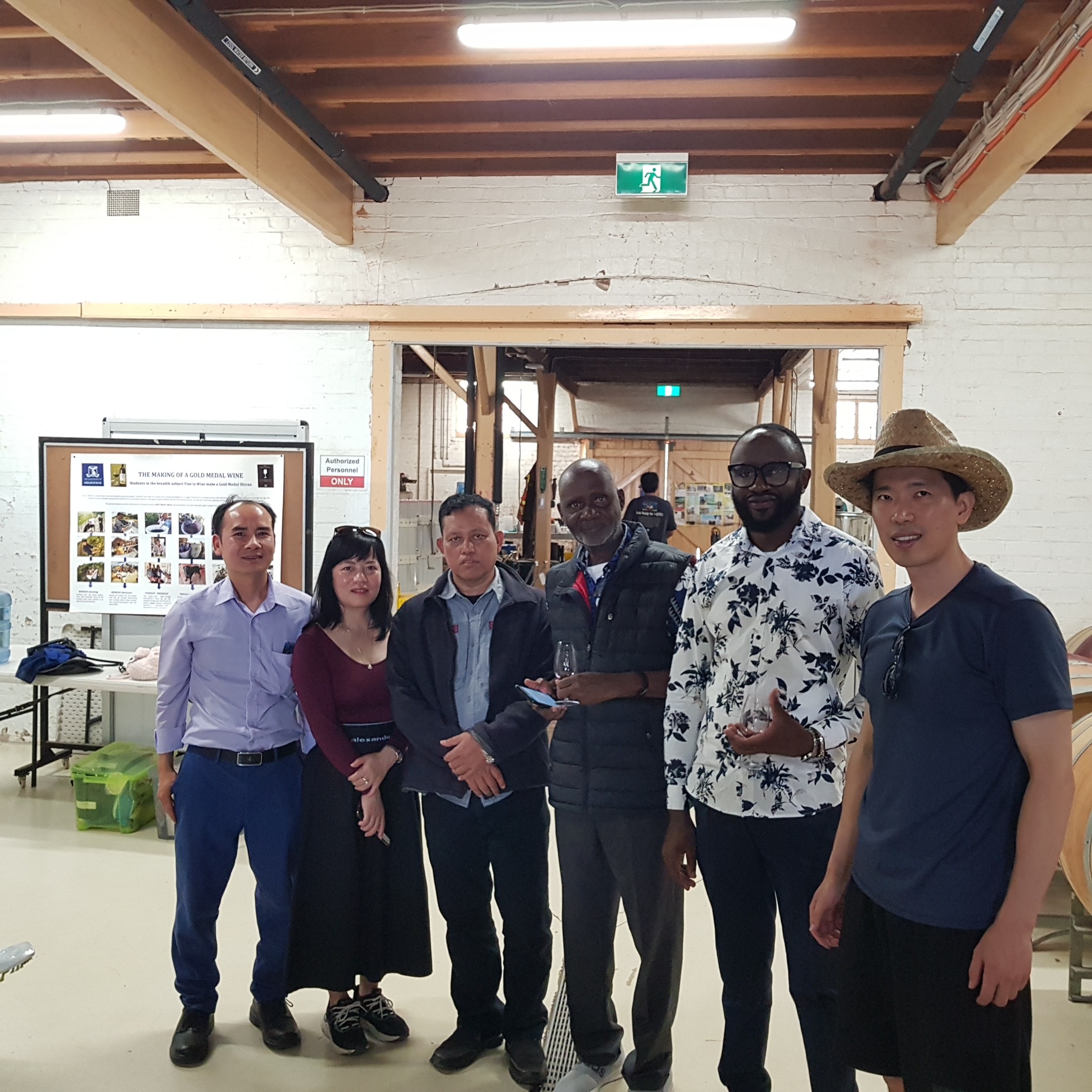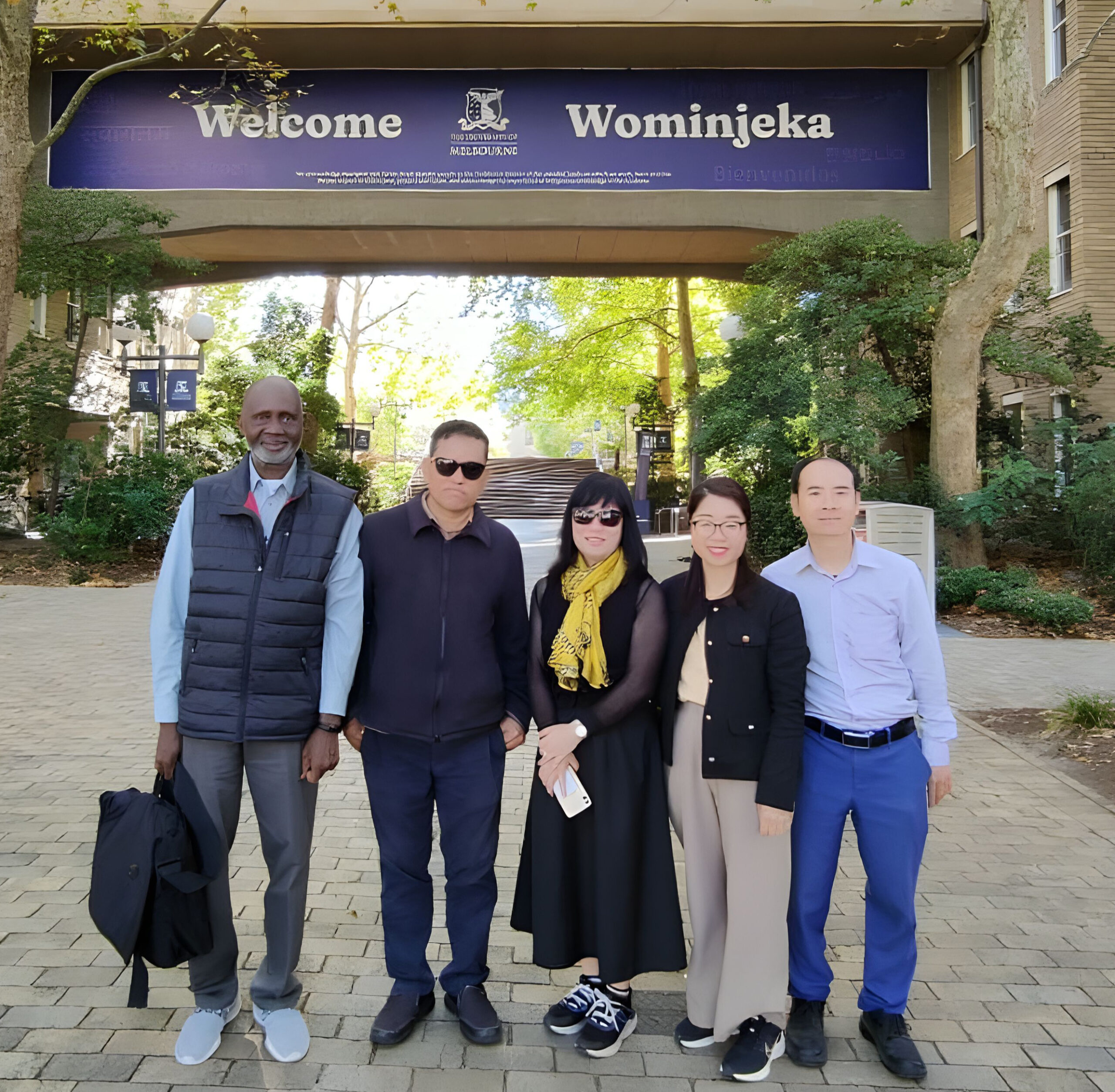

Sharing sustainable livestock practices across the globe
July 11, 2024

The Crawford Fund Victoria Committee in conjunction with the University of Melbourne, NSW Department of Primary Industries, and AgriBio recently supported training for three livestock specialists from Indonesia, Samoa and Vietnam.
Researchers at the University of Melbourne, Dookie campus, led by Dr Paul Cheng, Senior Lecturer in Livestock Nutrition and Grazing Management, hosted and delivered training on “Sustainable livestock practices training – production, health and, pollution mitigation.”
The training was specially designed for the three professionals who are leaders in their country’s animal science fields:
- Professor Marsetyo Marsetyo is currently residing in Palu, Central Sulawesi, in the eastern region of Indonesia. He works at the Department of Animal Science at Tadulako University.
- Associate Professor Siaka Diarra is from the University of the South Pacific in Samoa.
- Associate Professor Ngoc Tran Thi Bich is the Head of Department of Animal Feed and Nutrition at the National Institute of Animal Science, Vietnam.
This training provided participants the chance to be exposed to good concepts, connections, and facilities of sustainable animal production in both Victoria and New South Wales, and exchange ideas and contacts with Australian researchers explained Dr Cheng.

During the five-day program, the participants visited livestock research facilities at the University of Melbourne, NSW DPI, and AgriBio. At the end of the training session, the participants had the opportunity to meet and discuss with the University of Melbourne team on possible collaborations through ACIAR projects.
“The training equipped us with invaluable insights into climate-smart feeding and housing practices for ruminant livestock. Through interactive sessions and expert guidance, we gained a deeper understanding of sustainable nutritional management of dairy and beef cattle,“ said Associate Professor Siaka Diarra.
“I’m particularly excited that through collaboration with Dr Cheng and his team, we can apply these newfound skills to benefit the livestock industry in developing regions like ours. The training was incredibly enriching, and I look forward to integrating these learnings into my professional endeavors,” he concluded.
“Through all these training activities, the participants were fascinated by the scope of work and the prospects for further collaboration, especially considering the diversity in terms of research conducted in Victoria and New South Wales. Both commercial (e.g., Lely Robotic Dairy Ltd), industry (e.g., Murray Dairy, Gardiner Foundation), and government (e.g., NSW DPI) organisations were directly and indirectly involved in this training activity,” said Dr Cheng.
“One of the key areas that was of interest to the trainees was how to ignite valuable collaboration going forward in view of tapping into the expertise and top-notch research potential and facilities. A good example to substantiate this is the analysis of feed samples, where numerous challenges were identified in their respective nations to gain quality and timely analyses of livestock research feed samples. Through this training, they had firsthand exposure and interaction with research and commercial labs, likely to lead them for collaboration,” he said.
“At the end of this training, they went back to their respective nations as “representatives” ready to pioneer change. This is driven, by their research leadership (professors) and portfolios within their respective institutions,” said Dr Cheng.
“Further online discussion opportunities between the three professors and the Australian researchers have continued since the training concluded, further cementing the new networks and collaborations, an “equally valuable outcome of the training” according to Dr Cheng.
“We believe this training is a step towards helping to sustainably develop livestock production in these nations,” he concluded.




 0
0